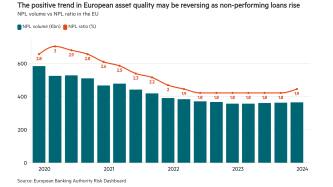In whatever way the eurozone crisis is resolved, the repercussions in the sovereign debt market will be felt for years to come. Due to their exceptional and unprecedented nature, the various initiatives taken over Greece hardly found any grounding in the broad principles used in previous restructurings.
Any deal within the eurozone was always going to be challenging, of course, given the infancy of its institutions and the many problems posed by multiple decision makers deciding the future of one currency. The pressing issue as to whether multilateral bodies such as the European Central Bank (ECB) or the newly created European Stability Mechanism (ESM) should have preferred creditor status – on the same lines as that granted to the International Monetary Fund (IMF) – continues to be unclear. There are also concerns about the complexities of having numerous parties involved in the negotiations, the lack of transparency, and the retrospective imposition of collective action clauses (CACs).









